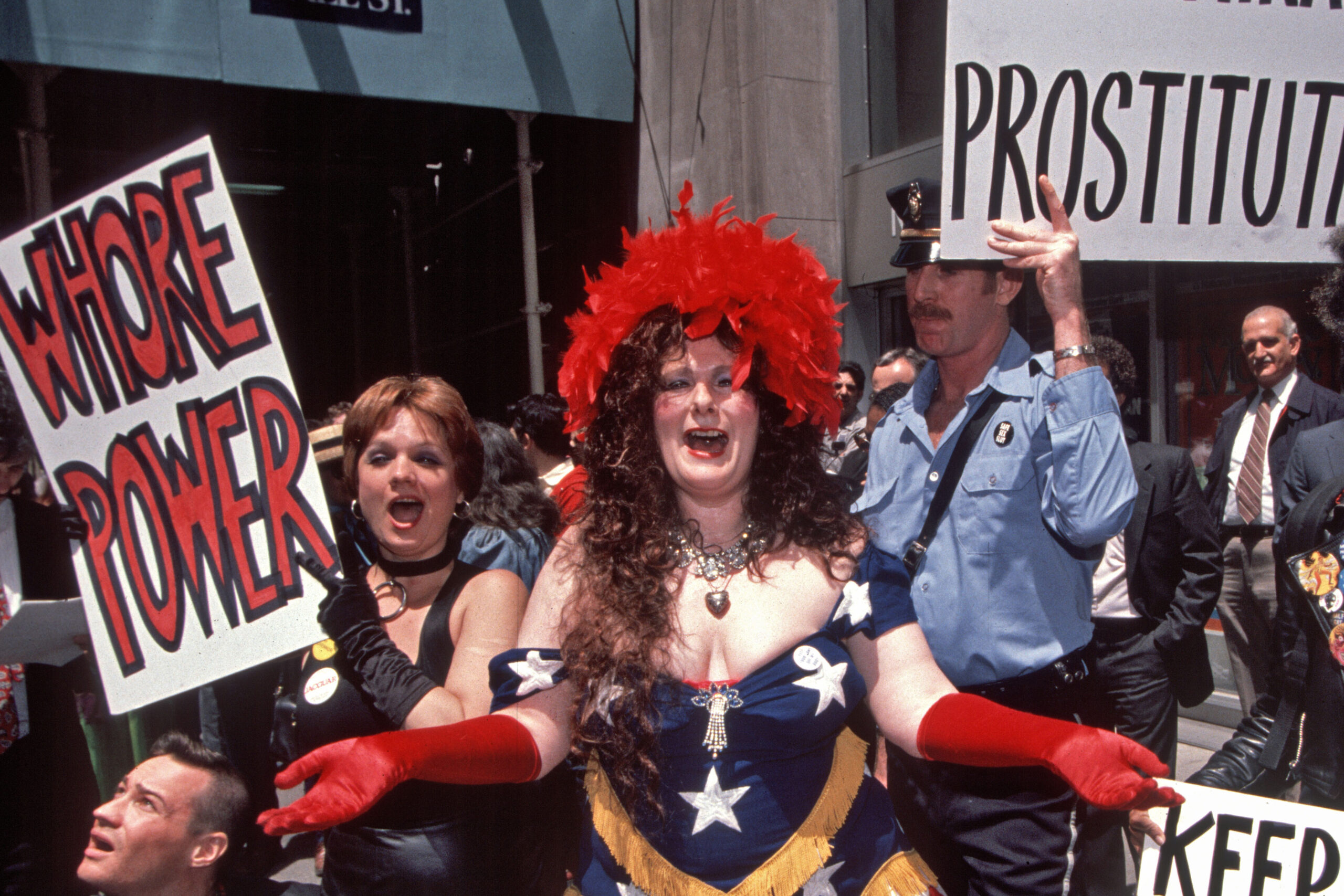Carol Leigh, a prominent Bay Area activist, artist and author credited with coining the term “sex worker,” died Wednesday in her San Francisco apartment, Vice News reports. She was 71 years old, and her death was confirmed by the executor of her estate.
A self-proclaimed “unrepentant whore,” Carol Leigh became legendary in San Francisco’s and the nation’s sex worker community for her bawdy, daring and frank advocacy of sex work, during a time when it was widely stigmatized and criminalized in the city. Leigh moved from New York to SF in 1977, and soon after became a sex worker.
The list of Leigh’s accomplishments and contributions to San Francisco is long: from 1977 to her death, Leigh relentlessly advocated for San Francisco’s street workers, joined prostitution rights organizations and pushed to decriminalize sex work in San Francisco. Leigh joined the HIV/AIDs activism organization ACT UP as an early member, and she helped found the Sex Workers Outreach Project. Leigh even found time to produce a one-woman political satire play that gave her the title, “the Scarlot Harlot.”
Perhaps Leigh’s most lasting legacy will be her coinage of the term “sex work” in the late 1970s, at a time when the sex industry used stigmatizing, objectifying terms to describe sex workers and their labor. The term quickly entered the mainstream and has become the preferred term among many involved in the industry.
Leigh gathered her views on sex work in a groundbreaking essay titled, “Inventing Sex Work,” in which she reveals coming up with the phrase during an anti-pornography feminist conference.
“I invented sex work. Not the activity, of course. The term,” Leigh wrote in her retrospective on the sex industry. “This invention was motivated by my desire to reconcile my feminist goals with the reality of my life and the lives of the women I knew. I wanted to create an atmosphere of tolerance within and outside the women’s movement for women working in the sex industry.”
Sex workers and activists have shared numerous messages of support for Leigh after her passing.
Maxine Doogan, an SF sex worker who was a part of the Erotic Service Provider Legal Education and Research Project with Leigh, says that Leigh’s legacy is best felt in its efforts to bring sex work into the world of feminist activism.
“Carol had been working furiously with the feminists, trying to fit in, trying to get the feminists to include us in their advocacy for women,” Doogan said. “She was really trying to always bring up the feminist angle of bodily autonomy, which is really timely now since Roe v. Wade has been stripped.”
Leigh’s writings and works will be archived at Harvard University, in the Schlesinger Library on the History of Women in America, according to her executor.
